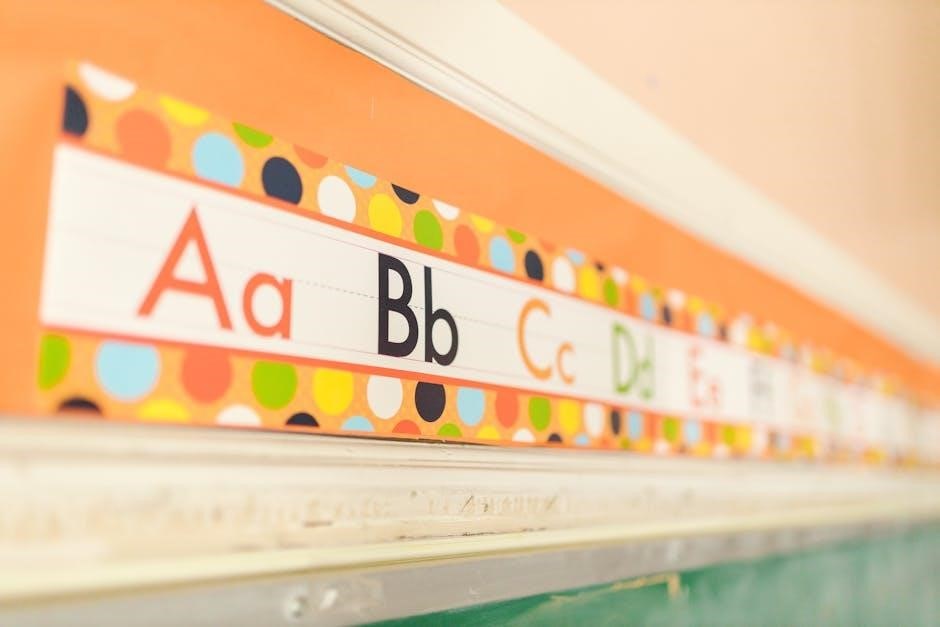Welcome to the free NYS Notary Exam Study Guide, designed to help you prepare effectively for the New York State Notary Public examination. This guide provides comprehensive resources, including practice questions, test-taking strategies, and detailed explanations of key topics such as notary laws, ethics, and document procedures. Whether you’re a first-time applicant or seeking renewal, this guide ensures you’re well-equipped to succeed.
Overview of the NYS Notary Exam
The New York State Notary Exam is a 40-question multiple-choice test designed to assess your understanding of notary laws, procedures, and ethics. You have one hour to complete the exam, and a passing score requires answering at least 70% of the questions correctly. The exam focuses on key areas such as New York-specific notary regulations, proper document handling, and ethical responsibilities. It is a critical step in becoming a commissioned notary public in New York State, ensuring you are prepared to perform your duties accurately and legally. Preparation is essential to succeed, making study guides and practice exams invaluable resources.
Importance of a Free Study Guide
A free NYS Notary Exam study guide is an essential resource for preparing effectively for the exam. It provides access to practice questions, sample exams, and detailed explanations, helping you understand the material without additional costs. These guides often include insights into the exam format, key topics, and test-taking strategies, ensuring you are well-prepared. They are particularly useful for individuals who cannot afford paid materials or prefer to supplement their study routine with free resources. Utilizing a free study guide can significantly improve your confidence and knowledge, increasing your chances of passing the exam and becoming a certified New York State Notary Public.

Understanding the NYS Notary Exam Format
The NYS Notary Exam consists of 40 multiple-choice questions, focusing on New York notary laws and procedures. You have 1 hour to complete the exam, requiring 70% to pass.
Question Types and Exam Structure
The NYS Notary Exam features 40 multiple-choice questions designed to test your knowledge of New York notary laws, procedures, and ethical practices. Questions are divided into categories, including legal definitions, document authentication, and identification verification. Each question provides four answer choices, with only one correct option. The exam does not include essay or fill-in-the-blank questions, focusing solely on multiple-choice format. You are allowed 1 hour to complete the exam, and a passing score requires answering at least 28 questions correctly. Understanding the question types and structure helps candidates allocate study time effectively and approach the exam with confidence.
Time Limits and Passing Score
The NYS Notary Exam is a 40-question multiple-choice test with a 1-hour time limit. To pass, you must answer at least 28 questions correctly, achieving a 70% score. The exam is designed to assess your knowledge of New York notary laws and procedures. Understanding the time constraints and required score helps you manage your study plan effectively. Allocate your 60 minutes wisely, ensuring you have enough time to review all questions. Familiarize yourself with the format and content through practice exams to build confidence and improve time management skills.

Eligibility Requirements for the NYS Notary Exam
To qualify for the NYS Notary Exam, applicants must be at least 18 years old, meet residency requirements, and pass a background check. Additional criteria include completing an approved notary education course and submitting the required application fee.
Basic Requirements for Applicants
To apply for the NYS Notary Exam, candidates must meet specific eligibility criteria. Applicants must be at least 18 years old and either a New York State resident or a non-resident regularly employed in the state. They must also pass a mandatory background check and complete an approved 6-hour notary education course. Additionally, applicants must submit a notarized application form and pay the required fee. These basic requirements ensure candidates are qualified and prepared to uphold the responsibilities of a notary public in New York State.
Application Process and Fees
The application process for the NYS Notary Exam involves submitting a completed form, paying the required fee, and providing a passing slip from the exam. Applicants must be at least 18 years old and meet residency or employment requirements. The exam fee is $15, and the notary commission fee is $60, totaling $75. Payment can be made by check or money order. Additionally, candidates must complete a 6-hour notary education course and pass a background check. Free study guides are available to help prepare for the exam, ensuring applicants are well-prepared to meet these requirements and succeed in becoming a notary public.

Key Topics Covered on the NYS Notary Exam
The exam focuses on New York notary laws, ethics, document notarization, and identification verification processes, ensuring applicants understand their roles and responsibilities as notary public officers.
New York State Notary Laws and Procedures
Understanding New York State notary laws and procedures is essential for passing the exam and performing duties correctly. The exam tests knowledge of legal requirements, including proper document notarization, identification verification, and maintaining accurate records. Notaries must adhere to state-specific rules, such as witnessing signatures and avoiding conflicts of interest. Familiarity with the New York Notary Public Law and administrative procedures is crucial. This section covers key legal principles, ethical standards, and practical steps for executing notarial acts in compliance with NYS regulations, ensuring you can confidently apply these laws in real-world scenarios and exam questions.
Understanding Notary Ethics and Responsibilities
Notary ethics and responsibilities are fundamental to maintaining public trust and ensuring legal integrity. As a notary public, you must act impartially, avoiding conflicts of interest and upholding confidentiality. Ethical practices include refusing to notarize incomplete or questionable documents, verifying signer identity, and avoiding false representations. Understanding these responsibilities is critical, as violations can lead to legal consequences, including loss of commission. The exam assesses your knowledge of ethical standards, emphasizing the importance of adhering to New York State laws and professional conduct. This section guides you through essential ethical principles and practical scenarios, ensuring you comprehend your role as a trusted public official.
Key Documents and Their Notarization
Mastering the notarization of key documents is essential for the NYS Notary Exam. Common documents requiring notarization include wills, trusts, powers of attorney, deeds, contracts, and affidavits. Each document type has specific requirements, such as verifying the signer’s identity and ensuring the document is complete. Notaries must affix their seal or stamp and maintain detailed records. Proper notarization ensures the authenticity and legality of these critical documents. Understanding the unique procedures for each document type is vital to avoid errors and ensure compliance with New York State laws. This section provides detailed insights into handling these documents effectively and ethically.
Identification Verification Processes
Accurate identification verification is a critical step in the notarization process. Notaries must ensure the signer’s identity by checking government-issued photo IDs, such as driver’s licenses or passports. Acceptable documents must be current or expired within five years. The notary must confirm the name, signature, and photo match the person appearing before them. Proper verification prevents fraud and ensures the legitimacy of the document. Understanding acceptable forms of ID and proper verification techniques is essential for compliance with New York State notary laws. This section provides guidance on best practices for verifying identities accurately and ethically during the notarization process.
Free Study Materials for the NYS Notary Exam
Access free online practice exams, quizzes, and study guides to prepare for the NYS Notary Exam. Utilize video prep guides and comprehensive handbooks for efficient preparation.
- Free practice exams with multiple-choice questions.
- Study guides covering notary laws and procedures.
- Video tutorials for visual learners.
- Quizzes to test knowledge and identify weak areas.
Free Online Practice Exams and Quizzes
Enhance your preparation with free online practice exams and quizzes designed specifically for the NYS Notary Exam. These resources feature multiple-choice questions that mimic the actual exam format, helping you assess your knowledge of notary laws, ethics, and procedures. Many platforms offer instant feedback, allowing you to identify and improve weak areas. Additionally, video prep guides and interactive quizzes provide engaging ways to reinforce learning. Utilize these tools to practice time management and familiarize yourself with the exam structure. Regularly taking practice exams can significantly boost your confidence and readiness for the official test. Start your preparation today and ace the exam effortlessly!
Comprehensive Study Guides and Handbooks
Comprehensive study guides and handbooks are essential tools for mastering the NYS Notary Exam. These resources provide in-depth explanations of notary laws, procedures, and ethical practices, ensuring a thorough understanding of exam topics. Many guides include sample questions, case studies, and practical scenarios to reinforce learning. Handbooks often cover key areas such as document notarization, identification verification, and state-specific regulations. Free study guides are widely available online, offering detailed insights and tips for exam success. By leveraging these resources, you can build a strong foundation and confidently approach the exam. They are perfect for self-study and complement other preparation materials like practice exams.
Video Prep Guides and Tutorials
Video prep guides and tutorials provide an engaging and interactive way to prepare for the NYS Notary Exam. These resources often include step-by-step explanations of notary laws, procedures, and ethical practices, making complex topics easier to understand. Many free video guides are available online, covering key exam subjects such as document notarization, identification verification, and state-specific regulations. Platforms like YouTube and dedicated notary websites offer tutorials that simulate real exam scenarios, helping you practice and build confidence. Video prep guides are particularly useful for visual learners, offering a dynamic approach to studying that complements traditional study materials like handbooks and practice exams.

Test-Taking Strategies
Mastering test-taking strategies is crucial for success. Manage your time effectively, prioritize high-confidence questions, and use elimination techniques to increase accuracy. Practice under timed conditions to build efficiency and reduce exam-day anxiety.
Time Management During the Exam
Effective time management is essential for acing the NYS Notary Exam. Allocate 1-2 minutes per question to ensure you complete all 40 questions within the 1-hour limit. Start by answering questions you’re confident about first, then return to challenging ones. This strategy helps maximize your score and reduces stress. Use practice exams to refine your pacing and identify areas needing more attention. Remember, thoughtful time allocation is key to balancing accuracy and speed, ensuring you have enough time to review your answers before submitting. Proper preparation and practice will help you manage your time efficiently during the actual exam.
Techniques for Eliminating Wrong Answers
Mastering techniques to eliminate wrong answers is crucial for success on the NYS Notary Exam; Start by carefully reading each question and identifying key terms. Use the process of elimination to remove obviously incorrect options, increasing your chances of selecting the right answer. Analyze context clues and cross-reference information from your study materials. Additionally, pay attention to absolute words like “always” or “never,” as these often indicate incorrect choices. Finally, review answer choices after eliminating wrong options to ensure the remaining answer aligns with the question. These strategies, combined with practice, will enhance your accuracy and confidence during the exam.
Practice Exams for the NYS Notary Exam
Practice exams are essential for improving exam readiness. They simulate real test conditions, helping you assess your knowledge and identify areas needing further review. Timed formats and detailed feedback ensure effective preparation.
Benefits of Taking Practice Exams
Taking practice exams is a crucial step in preparing for the NYS Notary Exam. These exams help assess your knowledge, identify weak areas, and improve time management skills. By simulating real test conditions, practice exams reduce exam anxiety and familiarize you with the question format. They also allow you to review incorrect answers, reinforcing your understanding of key concepts. Regular practice builds confidence and ensures readiness for the actual exam. Utilizing free or paid practice exams can significantly enhance your performance, making them an essential tool in your study plan. Consistent practice leads to better retention and exam success.
Free vs. Paid Practice Exam Options
When preparing for the NYS Notary Exam, candidates can choose between free and paid practice exam options. Free practice exams are an excellent starting point, offering a basic understanding of the exam format and content. They often include sample questions and answers, helping candidates identify areas for improvement. Paid practice exams, however, provide more comprehensive resources, such as detailed explanations, additional questions, and performance tracking tools. While free exams are cost-effective, paid options offer a more in-depth preparation experience. Both options are valuable, but combining free and paid resources can maximize study effectiveness and ensure a thorough understanding of the material.
How to Create a Study Plan Using Practice Exams
Creating a study plan using practice exams is a strategic approach to mastering the NYS Notary Exam. Start by assessing your current knowledge with a diagnostic practice exam to identify strengths and weaknesses. Set specific, achievable goals for each study session. Allocate dedicated time for practice exams, simulating real test conditions to build stamina. Review answers thoroughly, focusing on incorrect responses to understand mistakes. Track progress over time to refine your strategy. Adjust your plan based on performance, prioritizing challenging areas. Regularly test yourself to reinforce learning and boost confidence. This structured method ensures efficient preparation and optimal results for the exam.
Common Mistakes to Avoid
Common mistakes include misunderstanding notary laws, improper document handling, and rushing through questions. Avoid these errors by thoroughly reviewing study materials and practicing consistently for better results.
Mistakes in Understanding Notary Laws
One common mistake is misinterpreting New York State notary laws, such as incorrect assumptions about witness requirements or document authentication. Many candidates fail to recognize the distinction between notarization and legal advice, which is prohibited. Additionally, some overlook updates to notary regulations, leading to errors. To avoid these mistakes, thoroughly review the New York Notary Public Law and focus on understanding the ethical boundaries of a notary’s role. Using a free NYS Notary Exam study guide can help clarify these concepts and ensure compliance with state-specific rules. Proper preparation is essential to avoid legal and exam-related pitfalls.
Common Errors in Exam Preparation
Many candidates make the mistake of rushing through practice exams without reviewing incorrect answers, missing opportunities to learn from errors. Others focus solely on memorizing questions rather than understanding underlying concepts. Additionally, some individuals neglect to study beyond basic notary procedures, leading to gaps in knowledge about ethics and legal responsibilities. A common oversight is poor time management during practice, resulting in incomplete exams. To avoid these errors, use a structured free NYS Notary Exam study guide to ensure comprehensive preparation. Regularly review mistakes, allocate sufficient time for each section, and deeply understand the material to improve exam performance effectively.

Post-Exam Steps
After passing the exam, submit your application and required documents to receive your notary commission. Ensure compliance with state regulations and maintain your commission through ongoing education and ethical practices.
What to Do After Passing the Exam
After passing the NYS Notary Exam, submit your application and required documents, including the pass slip, to the New York State Department of State. Pay the notary public commission fee and complete any additional steps, such as taking an oath of office. Once approved, you will receive your notary commission certificate. Ensure you understand and comply with all state regulations, including maintaining a notary journal and adhering to ethical standards. Stay updated on New York notary laws and complete any continuing education requirements to maintain your commission. Properly handle and store your notary supplies to ensure compliance and public trust.
Maintaining Your Notary Commission
After obtaining your notary commission, ensure compliance with New York State regulations to maintain it. Complete any required continuing education courses and stay updated on changes in notary laws and procedures. Properly use your notary seal and journal to document all notarizations accurately. Avoid any actions that could lead to suspension or revocation, such as violating ethical standards or failing to adhere to legal requirements. Renew your commission every four years by submitting the renewal application and fee. Keep your commission certificate and supplies secure to uphold public trust and avoid unauthorized use of your notary authority.
Mastering the NYS Notary Exam requires dedication and the right resources. Use this free study guide to enhance your knowledge and confidently achieve your goal of becoming a certified notary public in New York State.
Final Tips for Success
To excel on the NYS Notary Exam, maintain consistent study habits and utilize free resources like practice exams and video guides. Focus on understanding New York notary laws and ethical responsibilities, as these are critical areas. Review practice exam answers to identify weak spots and refine your knowledge. Time management is key—practice answering questions efficiently. Stay calm during the exam and read each question carefully. By combining thorough preparation with strategic test-taking skills, you’ll be well-prepared to pass the exam and become a certified notary public in New York State.
Staying Updated on Notary Laws
Staying informed about New York notary laws is essential for maintaining your commission and performing duties correctly. Regularly review updates from the New York Secretary of State and consult reliable sources like legal handbooks or official websites. Free online resources, such as study guides and practice exams, often include the latest legal changes. Consider enrolling in continuing education courses or joining professional associations for ongoing support. By staying current, you ensure compliance with state regulations and uphold the integrity of your notary services. Always verify information through credible sources to avoid costly mistakes in your professional practice.
Additional Resources
Explore recommended books, online communities, and forums for additional support; These resources offer diverse perspectives and practical insights to enhance your exam preparation journey.
Recommended Books and Study Aids
For in-depth preparation, consider the New York Notary Public Study Guide with 5 Practice Exams by Bolton Prep, offering 200 practice questions and expert insights. Additionally, the NYS Notary Exam Comprehensive Study Guide provides detailed explanations of notary laws and procedures. Video prep guides, such as those from iPREP, offer interactive learning experiences. Online communities and forums also share valuable tips and study materials. These resources complement free study guides, ensuring a well-rounded approach to exam success. Invest in these aids to strengthen your understanding and confidence for the NYS Notary Exam.
Online Communities and Forums
Engaging with online communities and forums can enhance your preparation for the NYS Notary Exam. Platforms like Reddit and specialized notary forums offer valuable insights, study tips, and real-world advice from experienced notaries. These spaces often feature crowd-sourced study materials, practice exam discussions, and Q&A sessions. Many candidates share their exam experiences, highlighting common mistakes and effective strategies. While these communities are not substitutes for official study guides, they provide a supportive environment for asking questions and gaining confidence. Leveraging these resources alongside your study materials can help you stay motivated and informed throughout your exam preparation journey.
